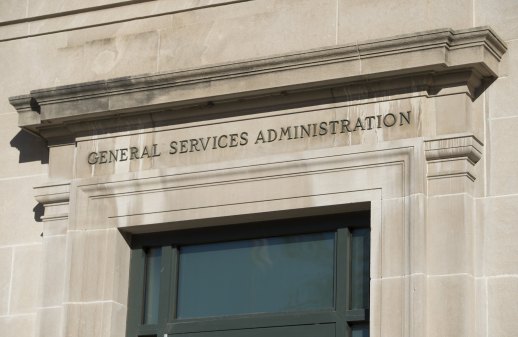Procurement group asks GSA to delay transactional data pilot
An association of federal contractors is calling on the General Services Administration to delay its pilot of a new transactional data reporting rule, raising more than 60 questions members say need answers before they will participate.
The Coalition for Government Procurement sent a letter to Jeff Koses, the senior procurement executive leading the transactional data reporting changes at GSA, asking the agency to pump the brakes until at least the start of 2017 to pilot the rule until industry has a better understanding of the major changes.
“There are critical questions that need to be answered before the launch of the TDR pilot. Until these questions and their associated issues have been addressed, Coalition members report that it will be difficult to accept participation in the voluntary TDR pilot,” CGP President Roger Waldron wrote in the letter. The coalition’s membership collectively accounts “for a significant percentage of the sales generated through General Services Administration (“GSA”) contracts including the Multiple Award Schedules and GWAC programs,” he added.
Contractors’ questions focus on how data will be used in price negotiations, reporting requirements and processes, security of the data, and the data’s “practical applicability/utility for complex configured items and professional service,” the letter says.
GSA published a final ruling for transactional data reporting in June requiring contractors to report their transactional data on a monthly basis. The rule also does away with the requirement for contractors to file Commercial Sales Practices disclosures and abide by the Price Reductions Clause, which GSA estimates could save the companies an estimated $29 million total.
“GSA agrees with the Coalition for Government Procurement that, like all big changes, the transition to the Transactional Data Reporting (TDR) rule’s reporting requirements will not be without its challenges. However, implementation of the rule will result in significant benefits for both our federal and industry partners,” Koses said in a statement emailed to FedScoop.
The agency this week issued its scheduled rollout of the pilot for different categories of contracted goods and services, beginning this month for multiple award schedules 72 (Furnishings & Floor Coverings) and 58I (Professional Audio/Video). IT Schedule 70’s pilot will launch in November.
Pilot participation is voluntary for contractors.
CGP is appreciative of GSA’s work, but it said members need clarifications on the modifications before plunging into the pilot.
“As you know, the transition from compliance with GSA’s current pricing policies to TDR is a major undertaking for both government and industry,” Waldron wrote. “We understand from information provided through GSA Interact and the transactional data webinar that the TDR pilots will be launched soon through a MAS modification and refreshes to certain Schedule solicitations. There remains, however, a great deal of uncertainty surrounding current implementation plans. This uncertainty directly impacts company business planning, operations, and costs as we approach Fiscal Year 2017.”
The Professional Service Council, a government contractor association like CGP, is similarly pleased overall with the new rule but still questions how it will play out in practice.
“Like the Coalition, PSC has raised with GSA a number of similar questions about how this rule will operate in practice, what happens after the pilot program ends and how companies can know before accepting orders what rules they will be subjected to before, during and after each transaction,” Alan Chvotkin, PSC’s executive vice president and counsel, told FedScoop in an email.
He added: “GSA generally does an outstanding job of communicating with industry on its acquisitions and its policies. … I would expect those exchanges to continue. Despite its obvious benefits to some, this TDR rule should be significantly improved before being implemented, even on a pilot basis.”
This type of communication is important to GSA’s process in making the new rule as effective as possible.
“GSA is pleased that our industry partners are fully engaged in the implementation process and are carefully thinking about how they will be impacted,” Koses said. “GSA has maintained a very collaborative relationship with our contractors, and we will continue to engage with industry and answer their implementation questions through multiple webinar trainings, our Interact platform, and in-person meetings. Our goal is to work with industry partners throughout the implementation process to ensure execution of a successful TDR pilot.”






